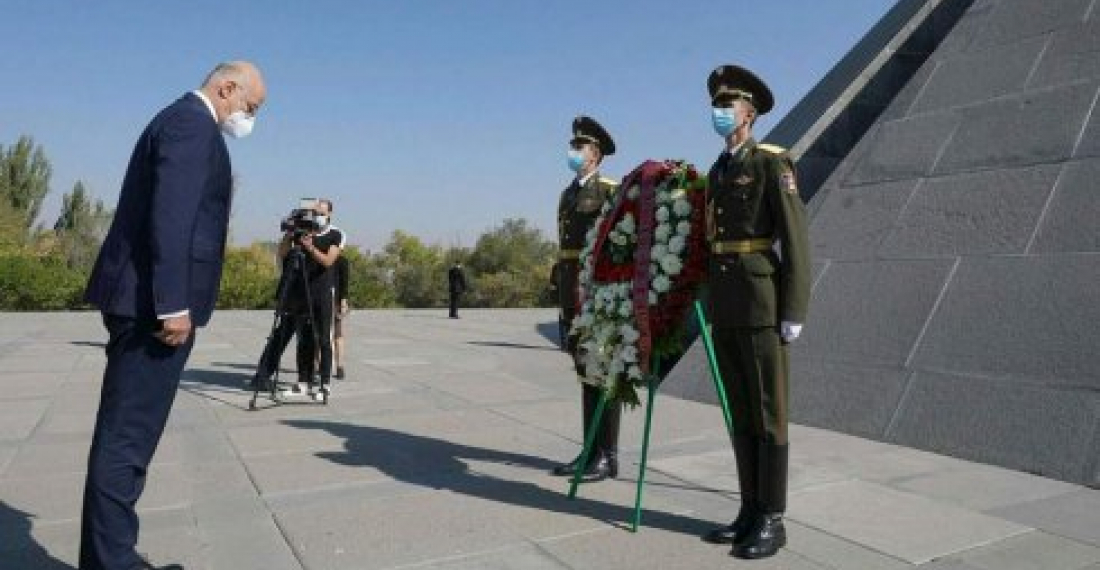Greek Foreign Minister Nikos Dendias, currently on a visit to Armenia, on Friday met with Armenian leaders to discuss the ongoing conflict situation unfolding in the South Caucasus.
Dendias was "warmly welcomed" to Yerevan by his counterpart, Zohrab Mnatsakanyan, with the two officials reaffirming "strong ties and excellent relations between the two countries," the Greek Foreign Ministry tweeted.
Dendias later held a joint press conference with Armenian Foreign Minister Zohrab Mnatsakanyan.
Dendias noted that Athens is closely following the developments and welcomes the ceasefire talks in Moscow. "We are very concerned about the violations of these agreements. The ceasefire must be strictly respected. We believe that solutions can be reached only through diplomatic means, returning to the negotiating table under the auspices of the Minsk Group Co-Chairs, on a solid basis of international law. We face very serious security challenges in our immediate neighborhood, but we are trying to find diplomatic solutions for peace, stability and prosperity in the region. He added that he was sure the international community will make a clear distinction between those who add fuel to the fire and those between are contributing to a solution of the problems.
The Greek Foreign Minister stressed that it is absolutely clear that foreign interference must end. "Ankara's intervention in this conflict is very worrying. "It has raised serious concerns in the international arena," he said.
Dendias reminded that Greece raised its voice in this regard from the very beginning. "We were the first to demand an EU response, calling for a peaceful ceasefire under the auspices of the Minsk Group. "We also suggested that the EU call for an end to the involvement of foreign parties," he said.
Nikos Dendias earlier laid a wreath at the Armenian Genocide Memorial before embarking on a series of official meetings.
source: commonspace.eu with armenpress (Yerevan) and Ekathimerini (Athens)
photo: Greek Foreign Minister Nikos Dendias paying homage at the Genocide Memorial in Yerevan during an official visit to Armenia on 16 October 2020 (picture courtesy of the Armenian Foreign Ministry).






